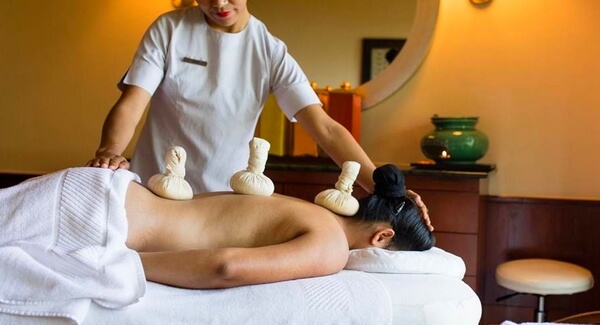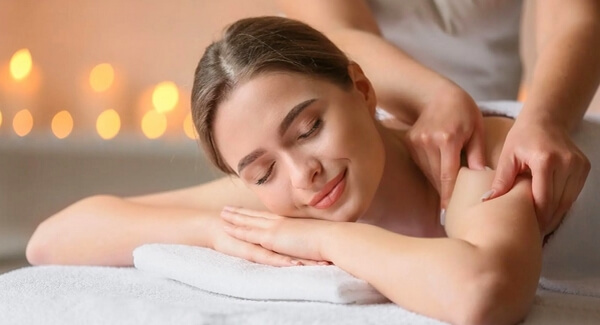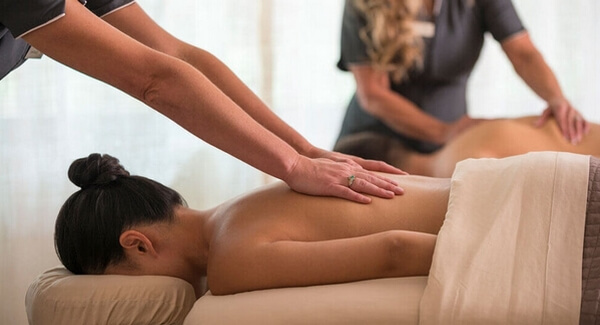The Rise of Home-Based Wellness: Why Mobile Massage is Redefining Comfort

As modern life continues to accelerate, the way we approach health and wellness is undergoing a fundamental transformation. Consumers are increasingly moving away from rigid appointment schedules and traditional clinic visits, seeking instead convenience, privacy, and personalized care that fits seamlessly into their busy lives. This shift has given rise to one of the fastest-growing sectors in the wellness industry: mobile massage therapy.
Mobile massage therapy brings qualified, licensed therapeutic care directly to clients' preferred locations—whether that's their home, office, hotel, or any other private space. This approach eliminates travel time, waiting rooms, and scheduling constraints while maintaining the highest standards of professional therapeutic care. The result is expert massage therapy that adapts to modern lifestyles rather than requiring people to adapt their lives to traditional service models.
This transformation represents more than just a trend; it reflects a deeper evolution in how we understand and prioritize health and self-care in our post-pandemic world. Mobile massage supports continuity in wellness routines, making it significantly easier to maintain consistent therapeutic care as part of a healthy lifestyle. By removing barriers to access, mobile massage therapy is democratizing wellness and making professional therapeutic care accessible to populations who might otherwise go without it.
The Mobile Massage Revolution: Transforming Wellness Through Convenient, Professional Care
Several key factors are contributing to the rapid expansion of mobile massage services worldwide, each addressing specific challenges that modern consumers face when trying to maintain their health and wellness.
Tailored Convenience for Complex Lifestyles
Today's professionals, parents, and busy individuals often struggle to balance work responsibilities, family obligations, and personal wellness needs. Traditional spa visits require a significant time investment, including travel, parking, waiting, and transitioning back to daily activities after treatment. Mobile massage eliminates these time barriers by bringing therapeutic care directly to the client's location.
This convenience factor extends beyond simple time savings. Mobile massage allows clients to schedule sessions that truly fit their lives—early morning appointments before work, lunchtime sessions in private offices, evening treatments at home after family responsibilities are taken care of, or weekend sessions that don't require leaving the house. This flexibility significantly increases the likelihood that clients will receive consistent therapeutic care, ultimately leading to improved long-term health outcomes.
For business travelers, mobile massage provides essential self-care opportunities in hotel rooms or temporary accommodations, ensuring that wellness routines can continue even when away from home. This consistency is crucial for individuals managing chronic conditions or high-stress lifestyles where regular therapeutic care is essential for maintaining health and performance.
Personalized and Private Therapeutic Environments
One of the most significant advantages of mobile massage is the ability to create completely personalized therapeutic environments tailored to individual preferences and needs. Unlike spa settings where ambiance is predetermined, mobile massage allows clients to control every aspect of their treatment environment.
Clients can adjust lighting to their preferred levels, select background music that promotes their personal relaxation response, control room temperature for optimal comfort, and eliminate external distractions that might interfere with their therapeutic experience. This level of customization often leads to deeper relaxation and more effective therapeutic outcomes.
The privacy factor cannot be overstated. Many individuals feel more comfortable receiving therapeutic care in familiar surroundings where they have complete control over their environment. This is particularly important for clients dealing with anxiety, body image concerns, or those who prefer private settings for personal care services.
Familiar surroundings also tend to enhance the relaxation response, as clients don't need to adapt to new environments or deal with unfamiliar stimuli that might create tension or distraction. The result is often more effective therapeutic sessions with longer-lasting benefits.
Enhanced Accessibility and Inclusivity
Mobile massage therapy significantly improves accessibility for individuals who face challenges with traditional clinic-based services. This includes individuals with mobility limitations, chronic health conditions that make travel challenging, or those with disabilities that necessitate specific accommodations.
Parents with young children often find it difficult to arrange childcare for spa visits, making mobile massage an ideal solution that allows them to receive therapeutic care while remaining available for family needs. Similarly, caregivers for elderly or disabled family members can access self-care services without leaving their loved ones unattended.
Individuals with anxiety disorders, social phobias, or sensory sensitivities may find traditional spa environments overwhelming or uncomfortable. Mobile massage provides therapeutic care in controlled, familiar environments that reduce anxiety and enhance therapeutic effectiveness.
This improved accessibility extends to geographic considerations as well. People living in rural areas or regions with limited spa facilities can access professional massage therapy through mobile services, ensuring that high-quality therapeutic care isn't limited to urban areas with abundant wellness facilities.
Professional Standards and Safety Excellence
Professional mobile massage therapists maintain the same rigorous standards as clinic-based practitioners, with additional considerations for mobile practice safety and effectiveness. Licensed mobile therapists are bound by the same ethical codes of conduct, health screening requirements, and professional standards that govern all massage therapy practice.
Mobile therapists invest in professional-grade portable equipment, including adjustable massage tables, premium linens, high-quality massage products, and sanitization supplies. Many also feature ambient lighting, music systems, and other equipment designed to create an optimal therapeutic environment in any setting.
Insurance and liability coverage for mobile practice ensure that both therapists and clients are protected. At the same time, professional licensing requirements guarantee that mobile practitioners have completed the same education and training as their clinic-based counterparts.
Safety protocols for mobile practice often exceed those required in fixed locations, as therapists must be prepared to adapt their safety measures to various environments while maintaining professional boundaries and client protection.
Evidence-Based Benefits of Professional Massage Therapy
Regardless of location, professional massage therapy provides numerous scientifically validated health benefits that support both physical and mental wellness. Mobile massage delivery doesn't diminish these benefits—in many cases, the enhanced comfort and convenience may amplify therapeutic outcomes.
Stress Reduction and Mental Health Support
Professional massage therapy activates the body's natural relaxation response, helping to reduce stress and promote mental wellness. Regular massage sessions have been shown to decrease muscle tension, improve mood, and support better sleep quality—benefits that are particularly pronounced when clients can relax completely in familiar, comfortable environments.
The mental health benefits of massage therapy extend beyond simple relaxation. Research suggests that regular massage can help manage anxiety, support emotional regulation, and contribute to overall psychological well-being when incorporated into a comprehensive self-care routine.
Physical Health and Pain Management
Massage therapy provides effective relief for various types of muscle tension and pain, including common issues like back pain, neck stiffness, and repetitive strain injuries. The techniques used in professional massage help improve circulation, reduce inflammation, and promote natural healing processes.
For individuals dealing with chronic conditions, regular massage therapy can be an essential component of pain management strategies, helping to maintain mobility, reduce discomfort, and improve quality of life. The consistency possible with convenient mobile services often leads to better long-term outcomes for chronic condition management.
Recovery and Performance Enhancement
Athletes and active individuals benefit from massage therapy's ability to support recovery, enhance flexibility, and help prevent injuries. Mobile massage makes it easier to maintain consistent recovery protocols, whether at home after workouts or at athletic facilities before competitions.
The convenience of mobile services encourages more frequent therapeutic sessions, which can lead to better maintenance of muscle health, improved performance, and reduced injury risk over time.
Selecting Professional Mobile Massage Services
Choosing the right mobile massage therapist requires careful consideration of professional qualifications, service quality, and safety standards. The following guidelines help ensure positive therapeutic experiences with qualified practitioners.
Verification of Professional Credentials
All legitimate mobile massage therapists should hold current licenses or certifications from recognized regulatory bodies in their jurisdiction. These credentials demonstrate completion of the required education, passing of the examination, and ongoing compliance with professional standards.
Professional liability insurance is essential for mobile practice, protecting both therapists and clients in case of any incidents or complications. Reputable mobile therapists are willing to provide proof of insurance and licensing upon request.
Membership in professional associations, such as massage therapy organizations or wellness service directories, often indicates commitment to professional standards and ongoing education. These affiliations also provide clients with additional recourse in the event of service issues.
Service Quality and Communication
Professional mobile massage therapists provide clear information about their services, pricing, policies, and procedures. They conduct thorough consultations to understand client needs, health conditions, and preferences before providing treatments.
Transparent communication about session expectations, space requirements, and preparation helps ensure successful therapeutic experiences. Professional therapists are happy to answer questions and provide detailed information about their qualifications and approaches.
Punctuality, professional presentation, and respectful communication are hallmarks of quality mobile massage services. Therapists should arrive on time, set up efficiently, and maintain professional boundaries throughout the service experience.
Reviews and References
Client testimonials and reviews provide valuable insights into service quality, professionalism, and therapeutic effectiveness. Look for reviews that mention specific aspects of service quality, such as punctuality, communication, treatment effectiveness, and overall professionalism.
Established mobile massage therapists often have relationships with healthcare providers, fitness professionals, or other wellness practitioners who can provide references or recommendations based on their professional interactions.
Global Growth and Market Trends
The mobile massage industry is experiencing remarkable growth across multiple international markets, driven by changing consumer preferences, technological advancement, and increased recognition of wellness as essential healthcare.
Technology-Enabled Service Delivery
Digital platforms and mobile applications have revolutionized how clients discover, book, and manage mobile massage services. These technologies enable efficient matching between clients and qualified therapists while providing transparent pricing, scheduling, and service information.
Online directories and booking platforms allow clients to review therapist credentials, read client reviews, and book services with confidence. These systems also enable therapists to manage their practices more efficiently while reaching broader client bases.
GPS tracking, secure payment processing, and digital communication tools enhance the mobile service experience while maintaining professional standards and client safety.
Integration with Broader Wellness Trends
Mobile massage is part of a larger trend toward home-based wellness services that includes mobile personal training, nutrition coaching, physical therapy, and other health services. This ecosystem of mobile wellness providers creates comprehensive support systems for clients seeking convenient, professional healthcare.
Corporate wellness programs increasingly include mobile massage services as employee benefits, recognizing the value of convenient stress management and health support services for workforce wellness and productivity.
The integration of mobile massage with other wellness services creates opportunities for comprehensive, coordinated care that addresses multiple aspects of health and wellness in convenient, accessible formats.
Market Expansion and Service Innovation
Geographic expansion of mobile massage services is making professional therapeutic care available in areas previously underserved by traditional spa and clinic models. This expansion is particularly beneficial for rural communities and regions with limited wellness infrastructure.
Service innovations include specialized mobile massage for specific populations (such as prenatal care, senior services, or athletic recovery), integration with healthcare systems, and development of mobile wellness packages that combine multiple therapeutic services.
The growing acceptance of mobile wellness services by healthcare providers and insurance systems is expanding access and affordability, making professional therapeutic care more accessible to broader populations.
Preparing for Mobile Massage Sessions
Successful mobile massage experiences require some preparation to ensure optimal therapeutic environments and effective treatment outcomes.
Space Preparation
Mobile massage requires a clear space approximately 8 feet by 6 feet for setting up the massage table and for the therapist's movement. The area should be private, quiet, and comfortable, with adequate lighting for safety while maintaining a relaxing atmosphere.
Room temperature should be comfortable for receiving massage, typically slightly warmer than normal room temperature since clients will be undressed during treatment. Ensuring privacy through closed curtains or doors helps create the secure environment necessary for effective therapeutic relaxation.
Communication and Expectations
Clear communication with mobile massage therapists about health conditions, preferences, and expectations helps ensure appropriate treatment approaches and successful outcomes. Clients should inform their therapists about any injuries, medications, or health concerns that may affect their treatment.
Discussing preferences for pressure, focus areas, and session goals helps therapists tailor their approaches to individual needs and ensures that clients receive the most beneficial treatments possible.
The Future of Mobile Wellness
The mobile massage industry continues to evolve, with emerging trends pointing toward even greater integration with healthcare systems, technological advancement, and service personalization.
Healthcare Integration
Growing recognition of massage therapy's health benefits is leading to increased integration with conventional healthcare systems. Mobile massage services are collaborating with healthcare providers to provide coordinated care for pain management, stress reduction, and support for chronic conditions.
Insurance coverage for massage therapy is expanding, particularly when provided for documented health conditions. Mobile delivery may enhance insurance acceptance by making therapeutic care more accessible and consistent.
Technological Advancement
Emerging technologies, including wearable health monitors, virtual reality relaxation systems, and artificial intelligence-powered treatment planning, may enhance mobile massage experiences while maintaining the essential human connection that makes therapeutic touch effective.
Advanced booking and management systems are making mobile massage services more efficient and accessible while ensuring professional standards and client safety.
Service Expansion and Specialization
The success of mobile massage is driving expansion into related services, including mobile physical therapy, specialized wellness coaching, and comprehensive home-based healthcare services.
Increased specialization within mobile massage services is creating opportunities for practitioners to develop expertise in specific populations or conditions while serving clients who might not otherwise access specialized care.
Frequently Asked Questions
Is mobile massage as effective as spa-based treatments?
Yes, mobile massage can be equally or more effective than spa treatments. The therapeutic effectiveness depends on the practitioner's skills and training, not the location. Many clients find that the comfort and privacy of their own space enhances their relaxation and treatment outcomes.
What should I do to prepare for a mobile massage session?
Clear a quiet, private space where a massage table can be set up safely. Ensure the room is comfortably warm and free from distractions. Have clean towels available if requested, and communicate any health conditions or preferences to your therapist in advance.
How do I ensure mobile massage safety?
Choose licensed, insured professionals with verifiable credentials. Check reviews and references, and ensure the therapist follows proper health screening and hygiene protocols. Professional mobile therapists maintain the same safety standards as clinic-based practitioners.
Can I request specific massage techniques during mobile sessions?
Absolutely. Most mobile therapists offer a range of techniques, including Swedish massage, deep tissue massage, sports massage, and other specialized approaches. Discuss your preferences and goals during booking and at the beginning of your session to ensure appropriate treatment.
How do I find trustworthy mobile massage therapists?
Use reputable professional directories, check licensing and insurance credentials, read client reviews, and ask for references. Look for therapists who provide clear information about their services, qualifications, and policies.
What are the costs compared to traditional spa services?
Mobile massage may cost slightly more than some spa services due to travel time and equipment transport, but many clients find the convenience and personalization worth the investment. Prices vary by location, practitioner experience, and service type.
Can mobile massage help with chronic health conditions?
Mobile massage can be a practical component of chronic condition management when provided by qualified practitioners and coordinated with healthcare providers. The convenience of mobile services often makes it easier to maintain consistent therapeutic care, which is crucial for supporting individuals with chronic conditions.
Are mobile massage services available for special events or groups?
Many mobile massage providers offer services for special events, corporate wellness programs, and group sessions. These services can be customized for various venues and group sizes, while maintaining professional standards and ensuring high-quality individual care.
Conclusion: Accessible, Professional Wellness for Modern Life
The rise of mobile massage represents a fundamental shift in how we approach wellness and self-care in the modern world. By bringing professional therapeutic care directly to clients' preferred locations, mobile massage eliminates traditional barriers to wellness while maintaining the highest standards of professional practice.
This transformation reflects broader changes in healthcare and wellness, where convenience, personalization, and accessibility are becoming essential components of effective service delivery. Mobile massage demonstrates that professional therapeutic care can adapt to modern lifestyles without compromising quality or effectiveness.
For consumers, mobile massage offers unprecedented convenience and personalization in accessing professional therapeutic care. For practitioners, it provides opportunities to serve clients more effectively while building sustainable practices that meet modern market demands.
As the industry continues to evolve, mobile massage will likely become an increasingly important component of comprehensive wellness and healthcare systems. The combination of professional expertise, technological innovation, and service convenience creates powerful opportunities for improving public health and wellness accessibility.
The future of wellness is mobile, personalized, and accessible. Mobile massage therapy is leading this transformation, proving that professional therapeutic care can successfully adapt to meet the needs of modern life while maintaining the therapeutic relationships and clinical effectiveness that make massage therapy valuable for health and wellness.
In an era where time is precious and personal wellness is increasingly recognized as essential healthcare, mobile massage offers a practical, professional solution that brings expert therapeutic care directly to those who need it, when and where they need it most.
Search Massage Therapists Near You.
More From Our Blog
Latest Blogs
Tips: How to Create the Perfect At-Home Mobile Massage Experience
Massage Therapy as a Career: Pathways to a Fulfilling Profession Globally
Building a Brand of Trust: Digital Age Strategies for Massage Therapists
The Future of Touch: How Technology is (and Isn’t) Changing Massage Therapy
A Global Look at Massage Therapy Qualifications - USA, Canada, Australia & Beyond
Beyond the Salon: Unique Massage Therapies You Never Knew Existed
The Power of Two: Exploring the Benefits and Etiquette of Couples Massage
Massage for Every Body: Celebrating Inclusivity in the Wellness Space
Why Men Are Embracing Professional Massage More Than Ever Before
The Healing Hands: Inspiring Stories of Massage Therapists Changing Lives
View All Blogs
Advertise with Massages Me and Grow Your Business!
Create an Ad within minutes & increase your earning potential as we connect you with more clients!



